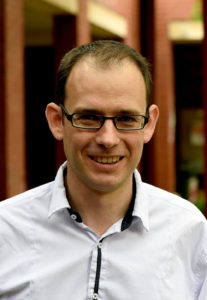ARC Grants Announced with EI Members
We're delighted to announce our Environment Institute members will receive funding with ARC grants.
In this round we have eight members (and their associates) included on round 1 for 2020. See all of the announcements for ARC funding here.
ARC Discovery Projects 2020
DP200102328 Dr Emma Sherratt with Flinders University - Snake fangs: insights into evolution, palaeoclimate and biodesign.
This project aims to generate unprecedented insights into the fangs of venomous snakes, focusing on elapids (taipans, tiger snakes etc). We will examine fang shape diversity, correlation with behavior and ecology, evolutionary history, and biomechanical properties. Data will be collected using cutting-edge micro-CT technology and analysed using 3D geometric morphometrics, computer simulations, and advanced phylogenetic techniques. This should greatly improve understanding of the evolution of venom fangs in all snakes. Other benefits include a large 3D reference database allowing identification of fossil fangs, with applications for studies of past climates, and a characterisation of fang biomechanics, relevant to biodesign and biomimicry. $425,930.00

Image: Dr Emma Sherratt
DP200102571 Professor Peng Bi - Climate Change and Burden of Disease: Current Risk and Future Burden.
Climate change has had a negative impact on human health. However, few studies have assessed burden of diseases (BOD) for these climate-sensitive/heat attributable diseases. We will generate the first national picture of the climate attributable BOD in Australia, measured in Disability-Adjusted Life Year (DALY), the attribution from climate, and project future BOD under various climatic/demographic change scenarios. This project will rank Australian climate-sensitive/heat attributable diseases by their current burden and projected increase under climate changes, and provide needed scientific evidence to policy-makers in the development, prioritization and implementation of current and future climate change and health adaptation strategies.
Funding awarded: $488,456.00

Image: Professor Peng Bi
DP200102411 Professor Christian Doonan and Professor Christopher Sumby - Advancing the Chemistry of Metal-organic Frameworks for Biotechnology.
This research will advance the fundamental chemical science required for the emerging field of Metal-organic Framework (MOF) biocomposites. A significant challenge to the commercial use of enzymes (biocatalysis), proteins (protein-based therapeutics) and virus-based vaccines is their instability to elevated temperatures and/or non-biological media. MOFs can encapsulate and protect biomolecules, thereby overcoming this limitation. This project will develop fundamental parameters that govern the formation, stability and activity of these biocomposites, expanding the scope of MOF materials available for bioprotection, and enable new developments in the areas of industrial biocatalysis and protein/virus-based therapeutics.
Funding awarded: $550,000.00


Image: Professor Christian Doonan and Professor Christopher Sumby
DP200101191 Professor Sarah Wheeler - Consequences of water reform and changing farm adaptation in the Basin.
This project aims to evaluate the consequences of, and lessons learned from, the past two decades of water reform in the Murray-Darling Basin (MDB). In particular, it will examine the recent economic and farm consequences of water recovery. Australia is over halfway through implementation of the MDB Plan, and has spent over $6 billion in water recovery to achieve basin-wide resilience, with billions more still committed. Project expected outcomes include pioneering new methods to track how MDB irrigation efficiency, productivity and other farm outcomes have changed as a response to water reform. It will also draw lessons from both national and international case studies to consequently inform more effective water management.
Funding awarded: $157,699.00

DP200101768 Dr Jonathan Tyler; Associate Professor John Tibby - East Asian Monsoon response to periods of abrupt global change.
This proposal aims to investigate the response of the East Asian Monsoon to abrupt climatic change, under baseline states of both warm and cool climate. The research is significant as it utilises unique, precisely dated sediments from Japan, and novel approaches to quantifying spatial and temporal climate patterns. The research will improve understanding of the nature and causes of decadal-scale changes in monsoon precipitation, with relevance for constraining the trajectory of the future monsoon, and the risks of prolonged drought and flood. The findings will benefit the Asian people, for whom the monsoon has major economic, social and environmental importance. In turn, this will benefit Australia, via economic and climatic ties to Asia.
Funding awarded: $464,000.00


Image: Dr Jonathan Tyler and Associate Professor John Tibby
ARC Centre of Excellence
LP190100194 Professor Nigel Spooner - Aboriginal rock art and cultural heritage management in Cape York Peninsula.
Aboriginal rock art and cultural heritage management in Cape York Peninsula. The Laura Sandstone Basin of Cape York Peninsula hosts one of the richest bodies of rock art in Australia and the world. It documents the life-ways of generations of Aboriginal Australians from their original settlement, through major environmental changes, to European invasion. This vast area, much of which is now jointly managed as National Parks by Traditional Owners, remains virtually unexplored archaeologically. This project aims to record this unique rock art so that its testimony remains for future generations. This will provide a framework for its sustainable management and findings will have profound implications for our understandings of the cultural behaviour and dispersal of the earliest modern humans to colonise Australia.

Funding awarded: $1,342,000.00

Newsletter & social media
Join us for a sensational mix of news, events and research at the Environment Institute. Find out about new initiatives and share with your friends what's happening.
